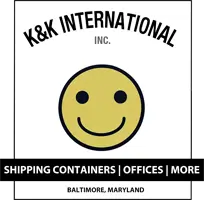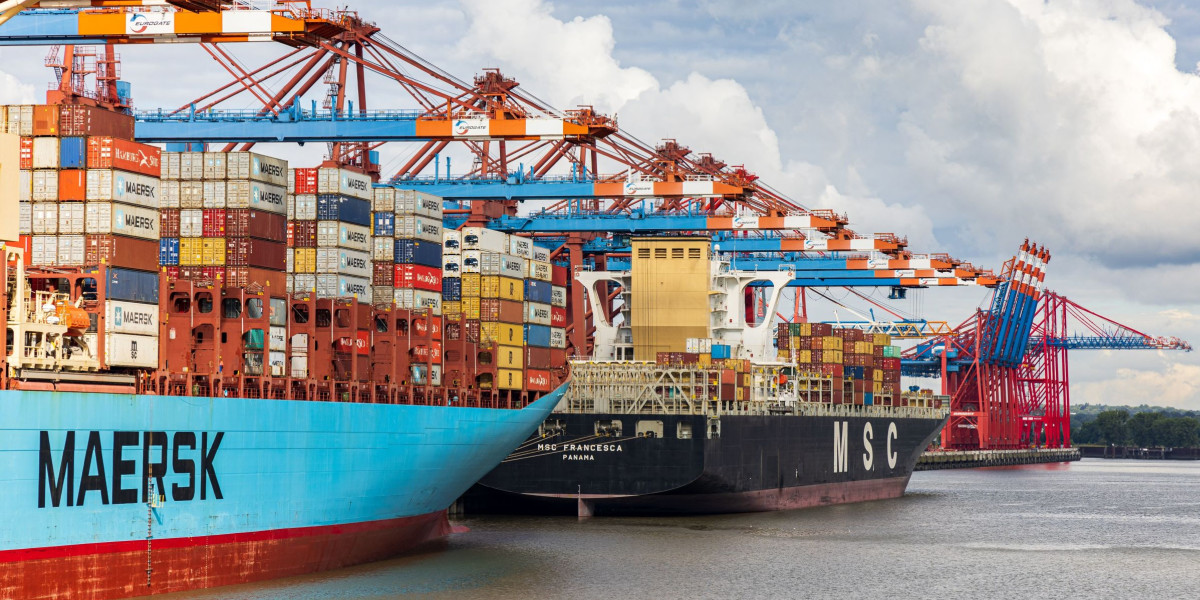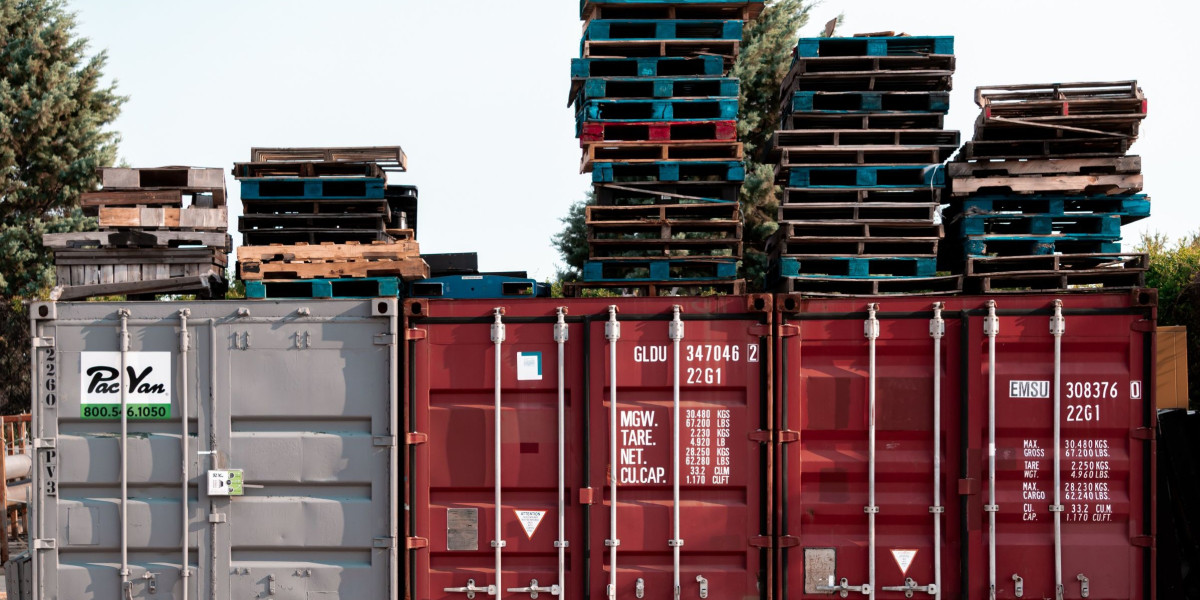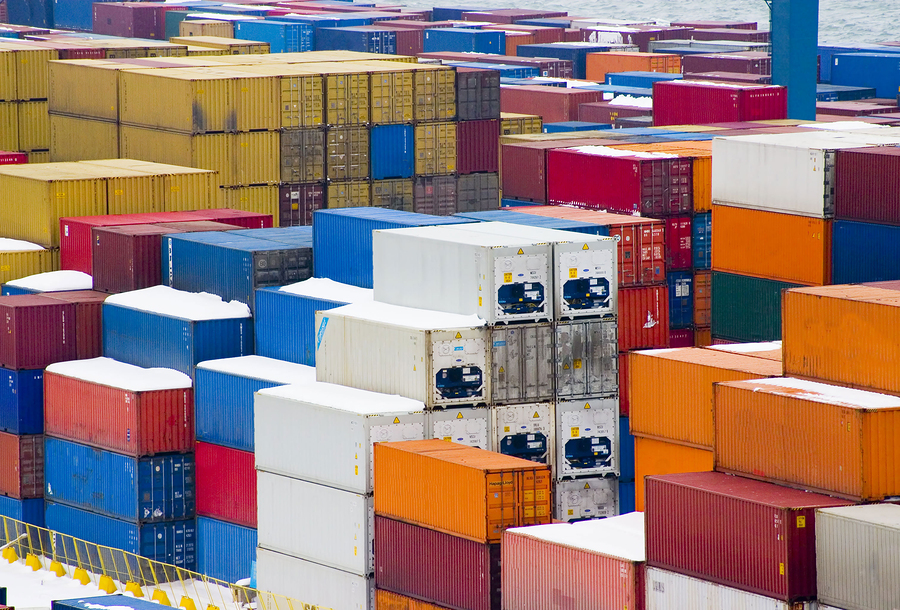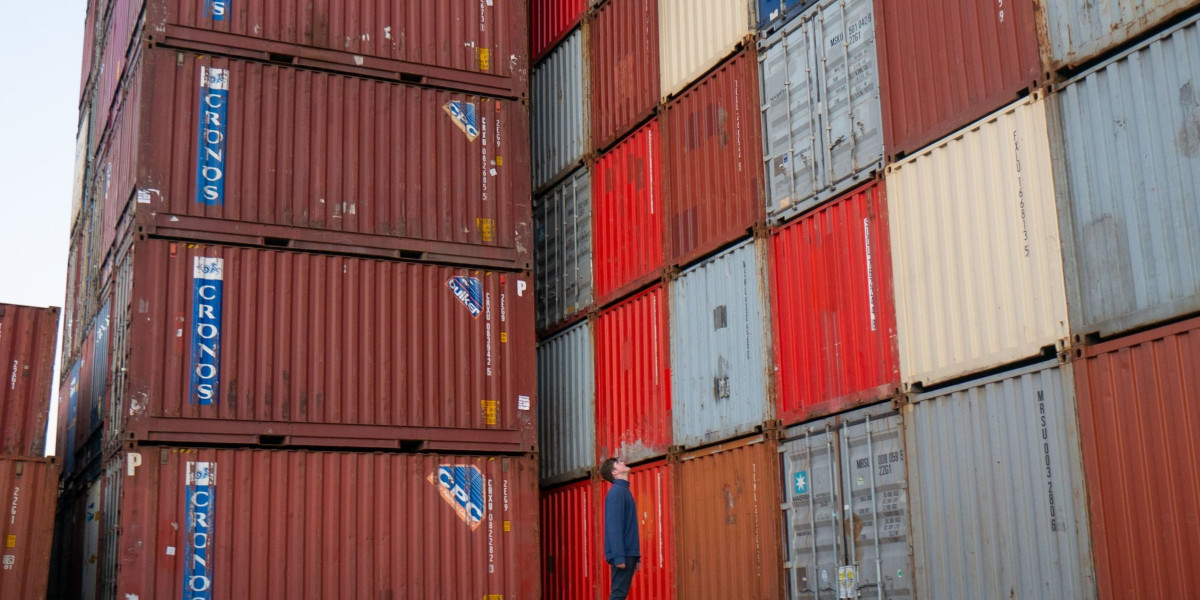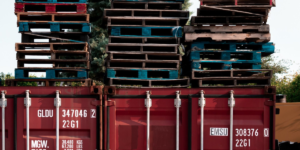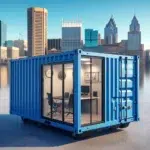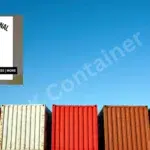The global storage container shortage has not only impacted the availability of containers but has also led to increased competition among buyers, creating an environment ripe for fraudulent activities. Scammers take advantage of this situation by exploiting the urgency and heightened demand for containers, manipulating potential buyers into hasty decisions and financial pitfalls.
As the shortage persists, it becomes increasingly crucial for buyers to exercise scrutiny and prudence when engaging in transactions related to shipping containers. Here’s what you need to know to avoid becoming a victim of this latest crime wave.
3 Types of Shipping Container Scams
In the realm of shipping container scams, there are various deceptive tactics that scammers employ to lure potential buyers.
- One common ploy involves the promise of special offers, discounts, or high returns on investments for purchasing shipping containers, creating an illusion of legitimacy. Scammers may go as far as creating fake businesses with enticing offers to attract unsuspecting buyers, leaving them vulnerable to financial loss and fraudulent activities.
- In other cases, scammers resort to sophisticated methods such as creating counterfeit social media pages, stealing established company names, and utilizing phishing emails to deceive potential buyers. By impersonating legitimate businesses and using deceptive communication channels, they aim to gain the trust of their targets, making it essential for buyers to exercise caution and due diligence when engaging with sellers in the shipping container market.
- These unscrupulous individuals also resort to stealing personal and financial information through illegitimate websites and communication channels, posing a significant risk to buyers. This underlines the importance of thoroughly verifying the credibility of sellers and the authenticity of their platforms before engaging in any transactions to avoid falling victim to such scams. It is crucial for buyers to remain vigilant and skeptical of offers that seem too good to be true, as scammers often exploit the desire for discounted containers and pressure buyers into making hasty decisions, leading to potential financial and legal ramifications.
Scammers often create fake social media pages that mimic reputable container companies, offering lucrative deals on shipping containers. They may then engage potential buyers through private messages, luring them with promises of substantial discounts and exceptional returns on investment.
However, these enticing offers are simply a facade to deceive buyers, highlighting the importance of thorough research and verification before making any purchasing decisions.
5 Red Flags When Buying Shipping Containers
When considering the purchase of shipping containers, it is crucial to be aware of the red flags that may indicate potential scams. These five warning signs can help buyers avoid falling victim to fraudulent activities:
- Steep discounts (i.e. 30% or more) on shipping containers should raise suspicion, as they may indicate a scam in progress. Scammers may use these enticing discounts to lure unsuspecting buyers into making hasty decisions without conducting thorough due diligence.
- Illegitimate websites and fake contact information are other signs that potential buyers should be cautious of. Scammers may create fake websites or use fake phone numbers and addresses to deceive buyers into believing they are dealing with legitimate sellers. It is important for buyers to verify the authenticity of the websites and contact information provided by the sellers before proceeding with any transactions.
- A lack of transparency in communication with the company and absence of reviews are also indicative of potential scams. Genuine sellers are usually transparent about the condition and history of the shipping containers they offer, and they often have reviews or testimonials from previous customers. On the other hand, scammers tend to avoid transparency and may not have any credible reviews to validate their legitimacy. Unsolicited contact from sellers should also be viewed with suspicion, as scammers often reach out to potential buyers without any prior interaction, attempting to pressure them into making impulsive decisions.
- Buyers should be cautious of questionable or missing photos, demands for payment through cryptocurrency or pre-paid cards, and a general lack of knowledge about containers. Scammers may use these tactics to manipulate buyers into making payments through untraceable methods and to cover up their lack of knowledge about the products they claim to be selling. These red flags serve as crucial indicators that buyers should pay attention to in order to avoid falling victim to shipping container scams.
- A potential buyer may come across a website offering shipping containers at significantly lower prices than the market average. Upon further investigation, the website may lack essential company information, such as a physical address or customer reviews, raising concerns about its legitimacy. Additionally, the seller might insist on receiving payment through cryptocurrency or pre-paid cards, avoiding conventional and traceable payment methods. These warning signs highlight the importance of scrutinizing potential sellers and conducting thorough research before engaging in any transactions.
Verifying the Legitimacy of Sellers
When it comes to verifying the legitimacy of sellers in the shipping container industry, there are several important steps that buyers should take. One crucial aspect is to ensure the authenticity of the seller by confirming their contact details. This includes verifying phone numbers and email addresses to ensure they are legitimate and not associated with any fraudulent activity.
Another essential step is to inspect any communication or documentation for company letterhead on invoices. Legitimate businesses typically use official letterheads for their invoices and other documentation, so the absence of this may raise red flags about the credibility of the seller.
We also recommend refraining from making payments via social media or similar applications. Scammers often use these platforms to deceive buyers, and making payments through them can significantly increase the risk of falling victim to fraudulent activities.
Conducting thorough research to select reputable suppliers is paramount to safeguard against falling victim to scams, because this takes care of most of the concerns to begin with. This includes comparing prices, reading reviews, and seeking recommendations from trusted sources to ensure that the chosen supplier is reliable and trustworthy. Taking these proactive measures can significantly reduce the risk of encountering fraudulent sellers and mitigate the potential for scams in the shipping container industry.
A practical example of verifying the legitimacy of a seller is through requesting a physical meeting to inspect the containers before making any financial commitments. If a seller is hesitant to arrange an in-person inspection or provides excuses to avoid it, it could raise concerns about the authenticity of their offerings. Additionally, buyers can insist on receiving official invoices with company letterheads and thorough documentation, which are common practices among reputable sellers. These verification measures are essential in protecting buyers from falling victim to fraudulent activities in the shipping container market.
Secure Payment Methods for Purchasing Shipping Containers
When it comes to purchasing shipping containers, using secure payment methods is crucial to avoid falling victim to scams. One of the most recommended practices is to avoid transactions involving cryptocurrency or pre-paid cards, as these methods can be more challenging to trace and recover in case of fraudulent activities. For example, scammers often pressure buyers into using these untraceable payment methods to avoid being caught, making it essential for buyers to be cautious and avoid such payment methods.
In addition to avoiding cryptocurrency and pre-paid cards, it’s important to engage in direct communication with legitimate container sellers and utilize secure payment channels. For instance, reputable sellers often offer secure payment options such as credit card payments, bank transfers, or escrow services, which provide an added layer of security for buyers. By opting for these secure payment methods, buyers can minimize the risk of financial loss and ensure a more transparent and secure transaction process when purchasing shipping containers.
Buyers should be wary of sellers who insist on unconventional payment methods and avoid engaging with them. By prioritizing secure payment options and conducting transactions through reputable channels, buyers can protect themselves from potential financial and legal repercussions associated with falling victim to scams in the shipping container industry.
Secure payment methods include utilizing escrow services, where a neutral third party holds the buyer’s payment until the transaction is successfully completed. This approach provides an additional layer of security for buyers, ensuring that the funds are only released to the seller upon the satisfactory delivery of the shipping containers. By leveraging secure payment methods such as escrow services, buyers can mitigate the risks associated with fraudulent activities and safeguard their financial interests when engaging in transactions related to shipping containers.
Researching and Choosing Reputable Suppliers
When researching and choosing reputable suppliers for shipping containers, it is crucial to compare prices from different sellers to ensure that you are not overpaying for the containers. A 20-foot container’s price may vary based on its age, condition, and additional features, so conducting a thorough price comparison can help you make a cost-effective decision.
In addition to comparing prices, researching suppliers is essential to avoid falling victim to scams. You can explore customer reviews and testimonials to gauge the reputation and reliability of the suppliers. This approach allows you to gather insights into the experiences of previous buyers and make an informed choice when selecting a supplier. Furthermore, viewing containers on-site before making a purchase provides you with the opportunity to physically inspect the quality of the containers and verify the legitimacy of the sellers, mitigating the risk of being deceived by deceptive online listings.
Keeping up-to-date with container prices and leasing rates is essential to avoid overpaying when purchasing shipping containers. This involves monitoring market trends and understanding the factors that influence container prices, ensuring that buyers make informed and cost-effective decisions based on current market conditions. By staying informed about pricing dynamics, buyers can navigate the process of selecting reputable suppliers with confidence and avoid potential scams in the shipping container industry.
Utilizing online platforms that offer verified and vetted container sellers to find reliable suppliers. These platforms provide a curated list of reputable suppliers, complete with customer reviews and ratings, enabling buyers to make informed decisions based on the experiences of previous customers. By leveraging such platforms, buyers can mitigate the risks associated with encountering fraudulent sellers and ensure a secure and transparent procurement process for shipping containers.
Factors Affecting the Price of Shipping Containers
When it comes to the price of shipping containers, there are several key factors that can significantly influence the cost. One of the primary determinants is the age of the container. Newer containers typically command a higher price due to their pristine condition and longevity, while older containers might be more budget-friendly but could require additional maintenance.
Another crucial consideration is the features included in the container. Containers with custom features like windows, insulation, and electrical inputs can be more expensive than standard ones. These additional features enhance the functionality and versatility of the container, catering to specific needs such as temperature-controlled storage or mobile office setups, justifying the higher price tag.
The condition of the shipping container plays a vital role in pricing. Containers classified as “Cargo Worthy” or “Wind & Watertight” generally come at a premium due to their superior condition and structural integrity, providing peace of mind to buyers regarding the quality and durability of the container. Conversely, containers with visible wear and tear may be more affordable but could necessitate repairs or refurbishments, impacting the overall cost.
It’s important for buyers to factor in delivery expenses when assessing the total cost of purchasing a shipping container. The location of the supplier in relation to the buyer, as well as the mode of transportation, can influence delivery costs. Additionally, the availability of the desired container type and size at the chosen location may impact delivery expenses, emphasizing the need for thorough consideration of logistics when budgeting for the purchase. Understanding these factors equips buyers with the knowledge needed to make well-informed decisions and ensures that they secure shipping containers that align with their specific requirements and budget constraints.
As an example, a buyer seeking a shipping container for storage purposes may encounter varying price ranges based on the container’s age, condition, and additional features. A newer container with custom features such as insulation and electrical inputs may command a higher price due to its enhanced functionality and durability, while an older container with visible wear and tear might be more affordable but require additional maintenance. Additionally, the cost of delivery, influenced by factors such as distance and logistics, adds another dimension to the overall pricing considerations. By understanding these pricing dynamics, buyers can make informed decisions and avoid overpaying for shipping containers, mitigating the risks associated with potential scams in the market.
Avoiding Scams When Buying Shipping Containers Online
When buying shipping containers online, it is essential to be cautious and vigilant to avoid falling victim to scams. One common red flag to watch out for is pricing that seems too good to be true.
Scammers often use unbelievably low prices to lure unsuspecting buyers into making hasty decisions without conducting thorough research or verifying the legitimacy of the seller. A 40-foot shipping container typically has a certain price range, so if a seller offers a significantly lower price without a valid explanation, it could be a warning sign of a potential scam.
As a buyer you should be cautious of sellers who pressure them into making impulsive decisions or using unconventional payment methods. By exercising skepticism and thoroughly vetting potential sellers, buyers can protect themselves from potential scams and ensure a secure and transparent transaction process when purchasing shipping containers online.
Seeking recommendations from trusted industry sources and leveraging verified online platforms can provide buyers with a curated list of reputable sellers, reducing the susceptibility to fraudulent activities and safeguarding their financial interests.
Reporting Shipping Container Scams
If you have fallen victim to a shipping container scam, it’s important to report the incident to the Federal Trade Commission. By doing so, you can prevent others from falling victim to the same fraudulent practices and contribute to the reduction of such activities within the industry. For example, if you encounter a suspicious online platform offering shipping containers at remarkably low prices and later realize it’s a scam, reporting the website to the proper authorities can help prevent others from being deceived.
Reporting any shipping container scams is essential in raising awareness about the tactics used by scammers. This can lead to increased vigilance among potential buyers and further deter scammers from targeting vulnerable individuals within the market. For instance, if you come across a social media page posing as a legitimate container company but suspect fraudulent activity, reporting it can help protect others from being swindled by the same scam. By taking the initiative to report shipping container scams, you contribute to the overall protection of buyers and the prevention of future fraudulent activities within the industry.
Taking reporting measures is also essential in raising awareness and preventing scammers from targeting more individuals in the future. By reporting shipping container scams, victims can contribute to the protection of others and the reduction of fraudulent activities in the industry.
Victims can share their experiences and warnings through online forums and social media platforms, creating a network of awareness and vigilance within the community. By sharing insights and cautionary tales, victims can help others identify potential scams and avoid falling victim to fraudulent activities within the shipping container industry. This collective effort in raising awareness and sharing information contributes to the overall protection of buyers and the prevention of future scams, fostering a safer and more secure environment for transactions related to shipping containers.
The Bottom Line
The global storage container shortage has heightened the risk of scams in the shipping container industry, making it imperative for buyers to exercise caution and thorough due diligence when engaging in transactions. By being vigilant, verifying the legitimacy of sellers, utilizing secure payment methods, and staying informed about pricing dynamics, you can protect yourself from potential scams and ensure a secure and transparent procurement process for shipping containers.
Want to get your next container from a proven supplier? Contact us now for a quote. We’ve been providing custom and specialized containers for commercial and governmental projects for over three decades. With K&K International, your container is always delivered on time, in great shape, to your exact specifications!
